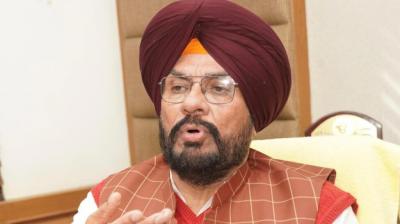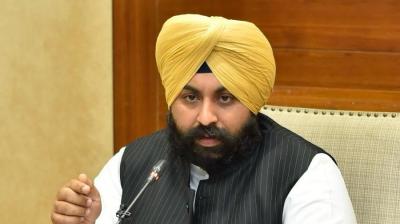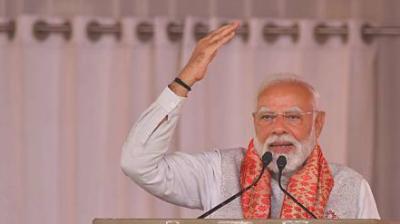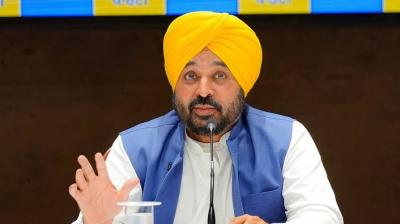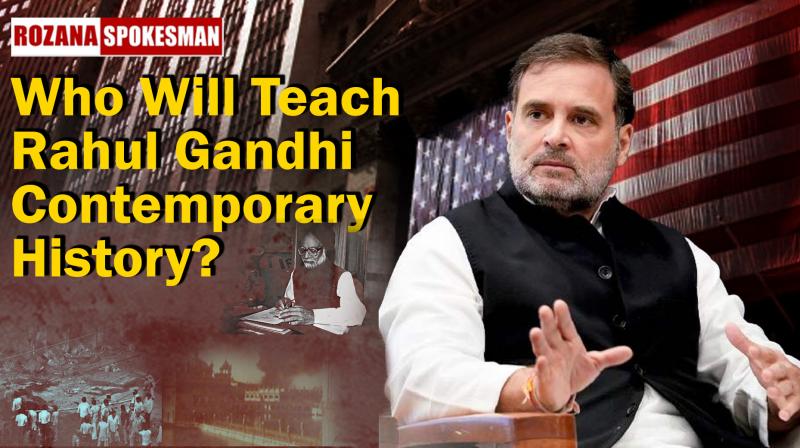
As someone who sees himself as a potential Prime Minister, Gandhi should demonstrate the qualities of a responsible and thoughtful leader.
Rahul Gandhi seems to need a deeper understanding of Indian history, both medieval and contemporary. His recent remarks in the U.S. painted a misleading picture of the Sikh community's situation in India, suggesting that Sikhs are being deprived of their religious freedoms, such as wearing turbans or the kara. This statement, made at a gathering organized by the Indian Overseas Congress in Virginia, has sparked widespread controversy.
The Bharatiya Janata Party (BJP) has strongly condemned Gandhi's comments, labeling them "false and misleading." While such reactions were expected from the BJP, the silence from other political and social parties, as well as Sikh organizations like the Shiromani Gurdwara Parbandhak Committee (SGPC), is surprising. Regardless of political differences, Gandhi's remarks have been deemed worthy of condemnation.
Gandhi's narrative closely aligns with that of Khalistani elements abroad, particularly in Canada and the U.S., which could tarnish the image of Sikhs in India. These statements also pose unnecessary challenges for Sikhs living outside of Punjab, as they often face questions and doubts from people of other faiths.
Historical Context:
The Sikh Turban: The turban, a symbol of Sikh pride, was first worn during the arrest of Banda Bahadur in 1716 under Mughal Emperor Farrukhsiyar. The persecution continued under Subedar Zakaria Khan of Lahore (1726-40). In more recent history, during the 1982 Asian Games, the Congress government of Haryana humiliated Sikhs by forcibly removing their turbans in the name of security searches, even subjecting two Sikh lieutenant generals to this indignity.
Destruction of Harmandir Sahib: In December 1761, Ahmed Shah Abdali demolished the Harmandir Sahib and other gurdwaras, including the Akal Takht. The Congress government under Indira Gandhi did something similar in 1984 during Operation Blue Star, which was led by Rahul Gandhi’s grandmother.
Sikh Massacres: In 1762, thousands of Sikhs were massacred by Ahmad Shah Abdali. A similar massacre took place in November 1984, following the assassination of Indira Gandhi. During this time, Rajiv Gandhi, Rahul Gandhi’s father, had just taken office as Prime Minister. Over 3,000 Sikhs were killed in Delhi alone, with the exact death toll across the country still unknown. Jyoti Basu, then Chief Minister of West Bengal, was one of the few political figures who called for an immediate halt to the violence.
Dr. Manmohan Singh’s Tenure: The Congress party claims that they absolved themselves by appointing Dr. Manmohan Singh as Prime Minister in 2004. However, Rahul Gandhi humiliated Dr. Singh in 2013 by publicly tearing down an ordinance issued by his own government. This act of disrespect stands in contrast to Gandhi’s current rhetoric about protecting Sikh interests.
Rahul Gandhi's claim that if the BJP can target Muslim women's hijabs today, they might attack Sikh turbans tomorrow is seen as an exaggerated and misleading statement. The BJP's stance on Islam and Christianity differs significantly from its views on religions originating in India, such as Buddhism, Jainism, and Sikhism. While their stance on Islam and Christianity is widely criticized, invoking discrimination against Muslims to make a case for Sikh victimization is both inappropriate and deceptive.
As someone who sees himself as a potential Prime Minister, Gandhi should demonstrate the qualities of a responsible and thoughtful leader. Making divisive statements that align with separatist or Khalistani narratives, whether in Kashmir or abroad, may only hinder his political aspirations and credibility.




